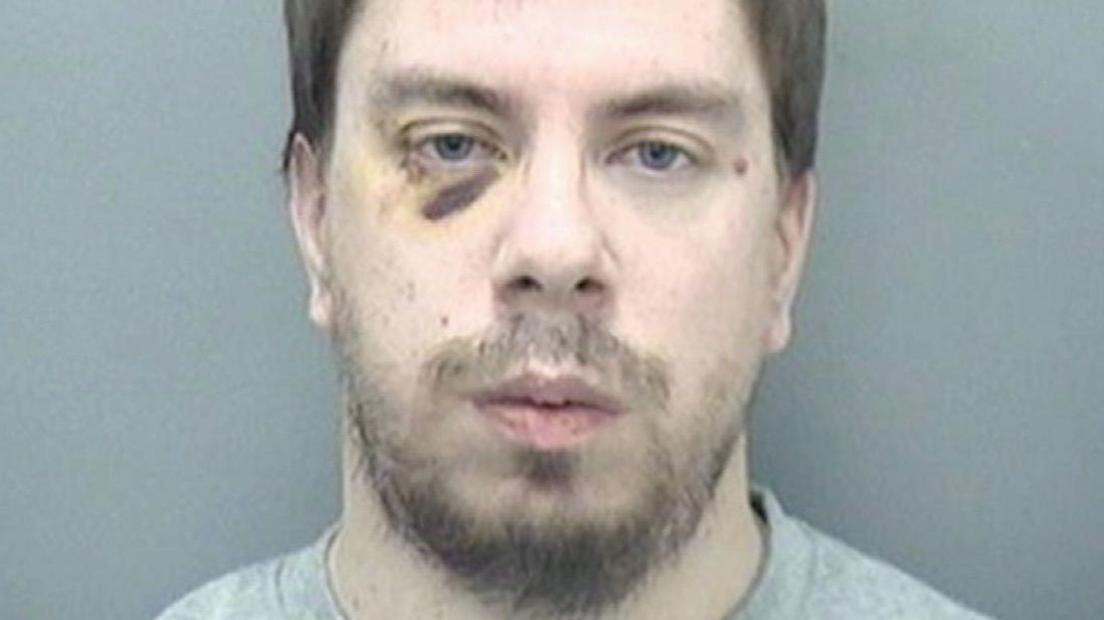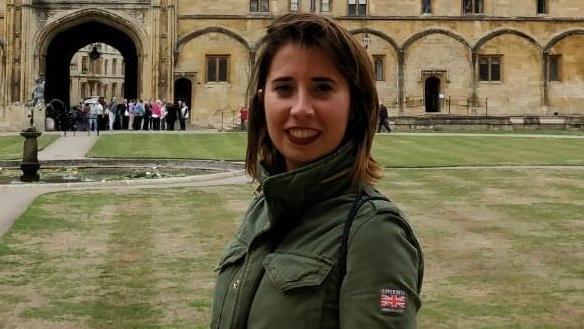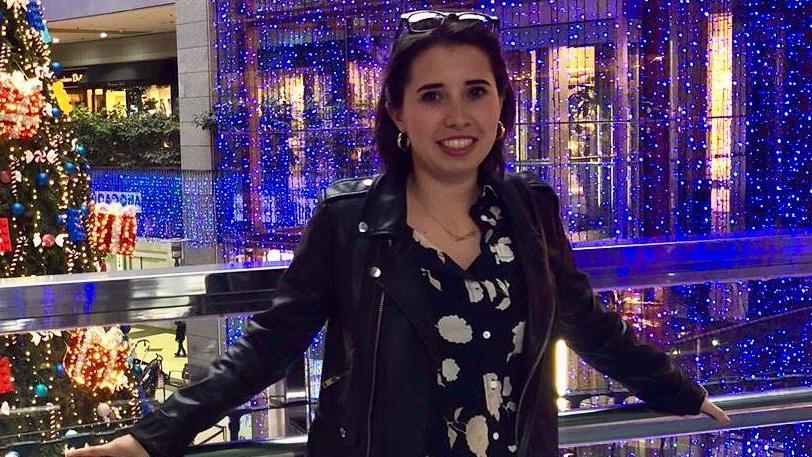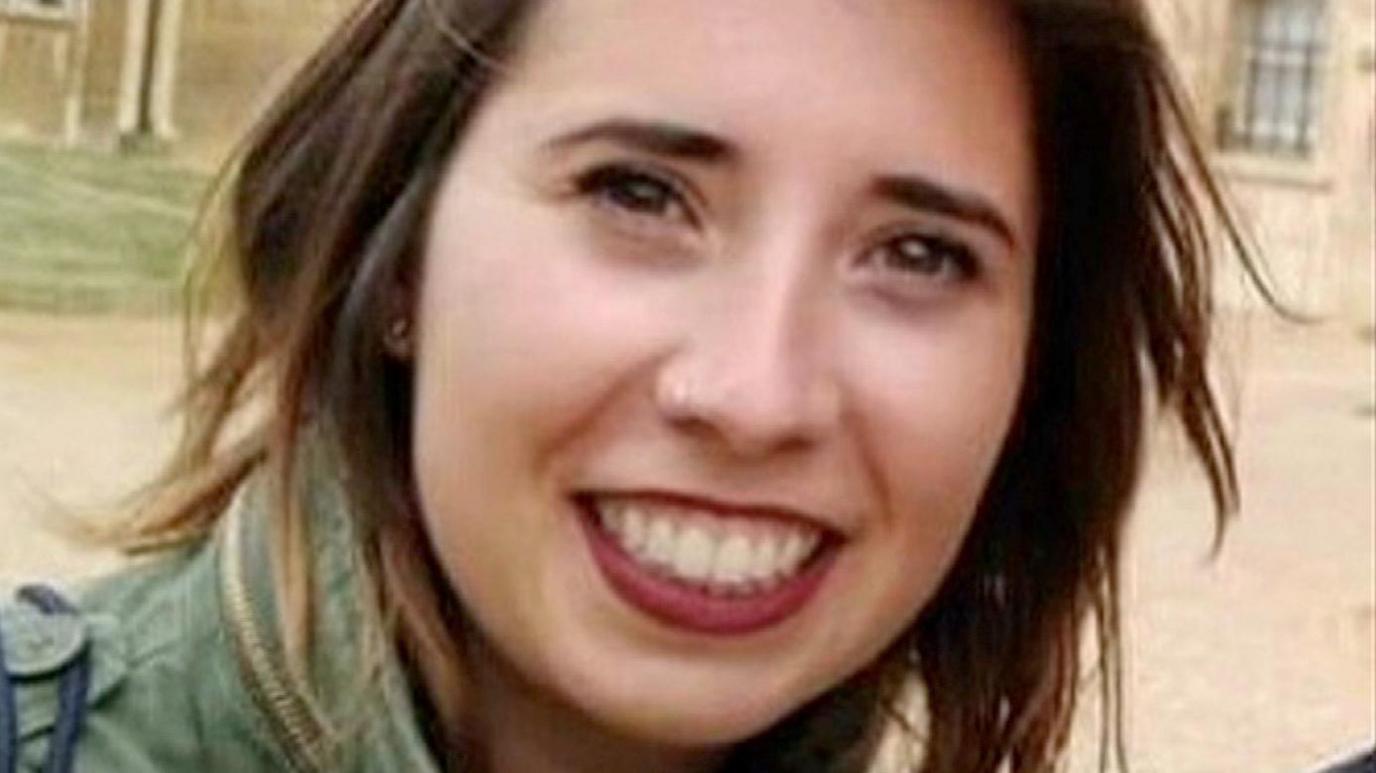'Mistakes' over hotel killer's release - inquest

The NHS was not notified about Stephen Cole's release from prison
- Published
A man who killed a hotel worker after he was set free from prison had not been flagged to the NHS about his mental health issues, an inquest has heard.
Stephen Cole was given antipsychotic pills but HMP Winchester's health contractor did not alert a GP or mental health team about his release, the coroner was told.
Six weeks later, he fatally beat and kicked Marta Elena Vento, 27, who was working a solo night shift at the Travelodge in Christchurch Road, Bournemouth, on 9 December 2020.
Practice Plus Group (PPG), a prison healthcare provider, told the inquest it "deeply regretted" not informing Cole's last known GP.
Ms Elena Vento, from Valencia, Spain, died after being punched, kicked and attacked with hair clippers for 42 minutes.
Two hours later, Cole, who was a guest at the hotel, entered a police station and confessed.
In 2021, he pleaded guilty to manslaughter by reason of diminished responsibility and will be detained in hospital indefinitely.

Marta Elena Vento was killed while she was working alone at a Travelodge hotel
Giving evidence, PPG regional manager Samantha Elkins said Cole had been seen by a prison doctor in August 2020 after attacking two inmates and spending all night banging his cell door.
Later that month, he had also attacked two prison healthcare workers, including a woman who was repeatedly punched and kicked, it was heard.
He had been prescribed the antipsychotic drug olanzapine and the dose had been gradually increased to the usual maximum, the inquest was told.
Cole's behaviour had improved and he had no longer been psychotic when he was released with a four-week supply of pills on 27 October, Ms Elkins said.
She told the coroner: "It is a deep regret that we didn't send a discharge summary to his GP.
"And we should have tried to find an appropriate authority to refer Mr Cole to for mental health support.
"They were mistakes and they were significant."
Ms Elkins explained the firm had been under "immeasurable strain" in 2020 due to the Covid pandemic and a lack of staff.

Ms Elena Vento's death had changed practices at Winchester prisoner, the inquest was told
Prison psychiatrist Dr Neeraj Tripathi told the hearing he had been concerned about Cole's release but did not remember chasing up his care in the community.
He said: "I realised it could be a challenge to get the right follow-up for Mr Cole, who was on remand. I was a bit concerned about what would happen."
Dorset senior coroner Rachael Griffin asked: "Did you ever question, 'Where's Mr Cole? What happened to him?'."
Dr Tripathi replied: "That would be ideal practice. That would be my normal practice, but I do not recall having that conversation."
He said he also did not recall discussing Cole's release with another psychiatrist who was preparing a sentencing report.
Previously, the inquest heard Cole had been released "suddenly" from prison after pleading guilty to three counts of indecent exposure, for which he was given a sexual harm prevention order.
No plan for his release had been made, although he was not considered by the prison to be exceptionally dangerous, the coroner was told.
In the light of Ms Elena Vento's death, HMP Winchester had started to screen remand prisoners to consider whether they might pose a future danger, the inquest heard.
Before the hearing, Ms Elena Vento's parents said their "lives have been destroyed by the sudden, horrific death of our beautiful daughter".
In a statement given outside the court, they said: "Four years have passed since Marta was brutally taken from us.
"Now we desperately need answers about how such a brutal assault can have happened and whether it could have been prevented."
The Bournemouth inquest, which is being heard without a jury, is expected to last up to six weeks.
Follow BBC South on Facebook, external, X, external, or Instagram, external. Send your story ideas to south.newsonline@bbc.co.uk, external or via WhatsApp on 0808 100 2240, external.
Related topics
- Published21 January

- Published6 September 2024
